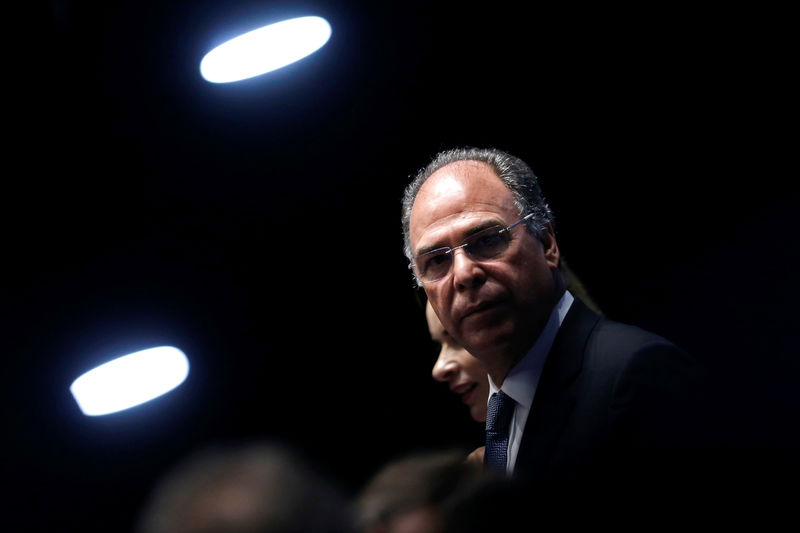By Maria Carolina Marcello and Jamie McGeever
BRASILIA (Reuters) - Brazil's Senate will conclude the first round of voting on a landmark pension reform bill on Wednesday, the government's leader in the upper house said, following a late-night setback to total savings for the social security overhaul.
Speaking a day after senators approved the bill's basic text but rejected a key amendment in a move that dilutes its overall fiscal impact by 76 billion reais ($18 billion), Senator Fernando Bezerra said they should finish voting on amendments later in the day.
The main text passed on Tuesday with a vote of 56 in favor - a comfortable margin above the 49 votes required - with 19 opposed and one abstention, but an amendment reducing bonus salary payments to low-paid workers was rejected.
There are six more amendments to be considered and voted on before the second and final vote can be held, probably next week.
President Jair Bolsonaro on Wednesday urged senators to approve the legislation, which requires two rounds of voting in the upper house because it will change the constitution.
"Reform is necessary. If it doesn't come, Brazil will be bankrupt in two years. Sorry, you have to approve it, there's no alternative," Bolsonaro said in a video on his Facebook (NASDAQ:FB) page.
"There is no plan B ... other governments have tried to do it but failed. That's the reality."
Overhauling the costly social security system is Bolsonaro's economic reform priority this year. Through a mix of unpopular measures such as an increase to the minimum retirement age and to workers' pension contributions, the bill aims to save the public purse more than 900 billion reais over the next decade.
The head of Bolsonaro's political party in the Senate, Senator Major Olimpio, warned on Tuesday that the second-round vote scheduled for next week might not take place if the government reneges on promises made to lawmakers in return for their support.

The government, central bank and many economists insist that pension reform is needed to boost confidence, investment and ultimately economic growth.
(Reporting Jamie McGeever and Maria Carolina Marcello in Brasilia; Additional reporting by Pedro Fonseca in Rio de Janeiro; Editing by Nick Zieminski and David Goodman)